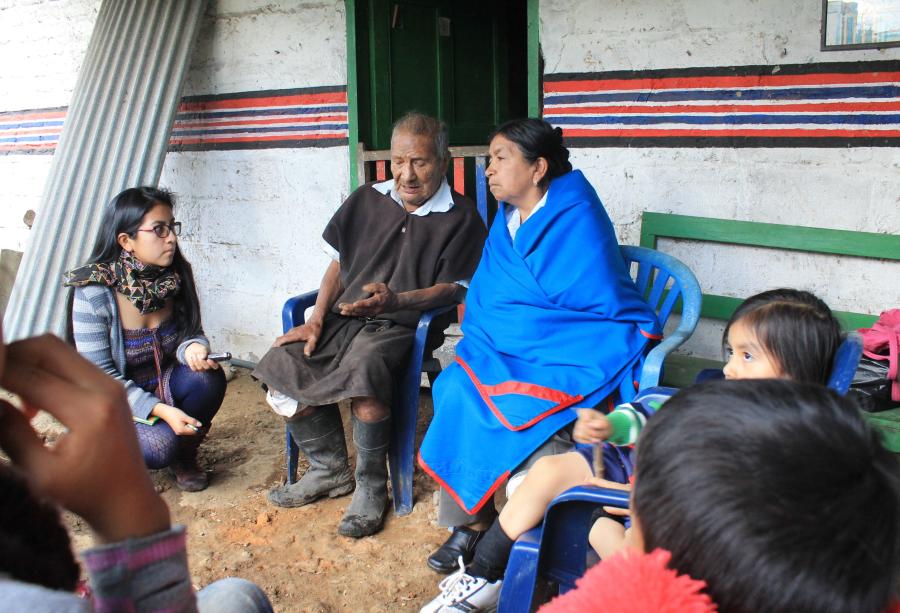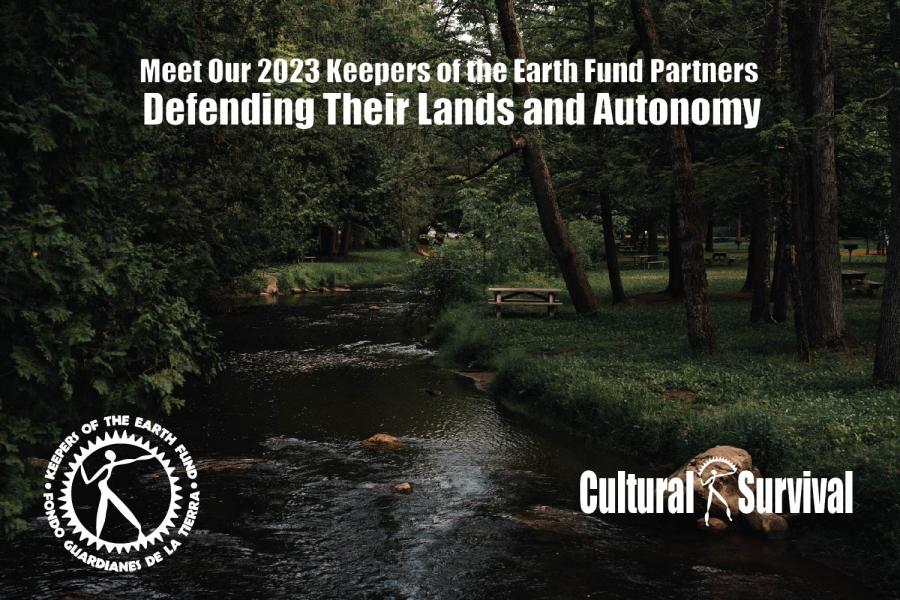
It has been just over a month since I joined Cultural Survival. I just returned from an inspiring trip to Guatemala, meeting with our staff, our partners, and local Maya Indigenous leaders and wanted to share some reflections with you.
I learned that the areas we visited, Coban and Nebaj, the traditional territories of the Maya Q’eqchi’ and Ixil have some of the highest numbers of people, especially youth, leaving their communities and going to the United States in search of work. Everything is connected and we cannot look at issues in silos. When it comes to problems with immigration, we really need to evaluate the impacts of colonization, decades of neoliberal policies, and the current operations of extractive industries, agro companies, and monocropping, that have impoverished Indigenous communities.
If we want to deal with the issues of immigration, it can not be done at the point when people are at the US-Mexico border. The problem starts way before that. In Central America, it often starts with a company moving onto the traditional land of Indigenous Peoples to operate a monocrop plantation of palm oil (or coffee, bananas, sugar cane, etc..) polluting local water sources, driving local food producers out of work, paying miserable wages, and sometimes using violence to keep people from protesting. People are forced to leave their families and homes out of desperation, as they cannot afford to stay in their home communities due to lack of economic opportunities, to escape violence, and due to the rising costs of food. They are forced to migrate in order to find employment that will pay them wages which they can send back home to support their families.
One of the key answers to immigration challenges is decolonization and supporting home communities with sustainable economic opportunities so that people do not have to leave. Returning back to Indigenous lifeways and using traditional knowledge in food production is one way. I was inspired by the work of Rax Kok (Q’eqchi) from Chisec who is teaching youth traditional agricultural practices for food production and providing employment for local people in Chisec, a community where palm oil monocropping, primarily for the export market to the United States, has killed local food growing. He says, “We were losing our men, our communities to migration. People do not want to leave their wives and children, but do so out of absolute necessity and despair. Who will stay and continue our traditions if we do not create economic opportunities right here.” Traditional agricultural practices not only provide local economic opportunities but also help mitigate the impacts of climate change and support local biodiversity and ecological resilience.
We have to recognize that we, the “industrialized West,” are the problem. Everything is connected and things done in one area will result in a chain of events directly impacting other areas. The West’s thirst for cheap snacks which use palm oil has an impact on Indigenous communities, where it has become unviable to cultivate local crops, and is destructive to local ecosystems. Also, the impact of products produced with palm oil come back to Indigenous territories and affect community health.
Indigenous Peoples hold the knowledge that can address and mitigate some of today’s greatest challenges. Returning to this knowledge and transferring this information across generations is vital, and promoting Indigenous languages, which hold knowledge accumulated over thousands of years on medicine, meteorology, agriculture, and the like, is imperative. At Cultural Survival, we strive to amplify Indigenous voices by supporting community media efforts, grassroots advocacy, and projects that are led by Indigenous people and rooted in Indigenous knowledge. We are thankful for your generosity and hope you will continue to support our work with Indigenous communities.
With Gratitude,
Galina Angarova (Buryat)
Executive Director
Photo: Cultural Survival staff and Q'imbal Women's Association, a program partner which works to increase the participation of Indigenous women in the areas of traditional knowledge, environmental protection, and the struggle for identity of the Ixil People in Nebaj, Quiché, Guatemala.



